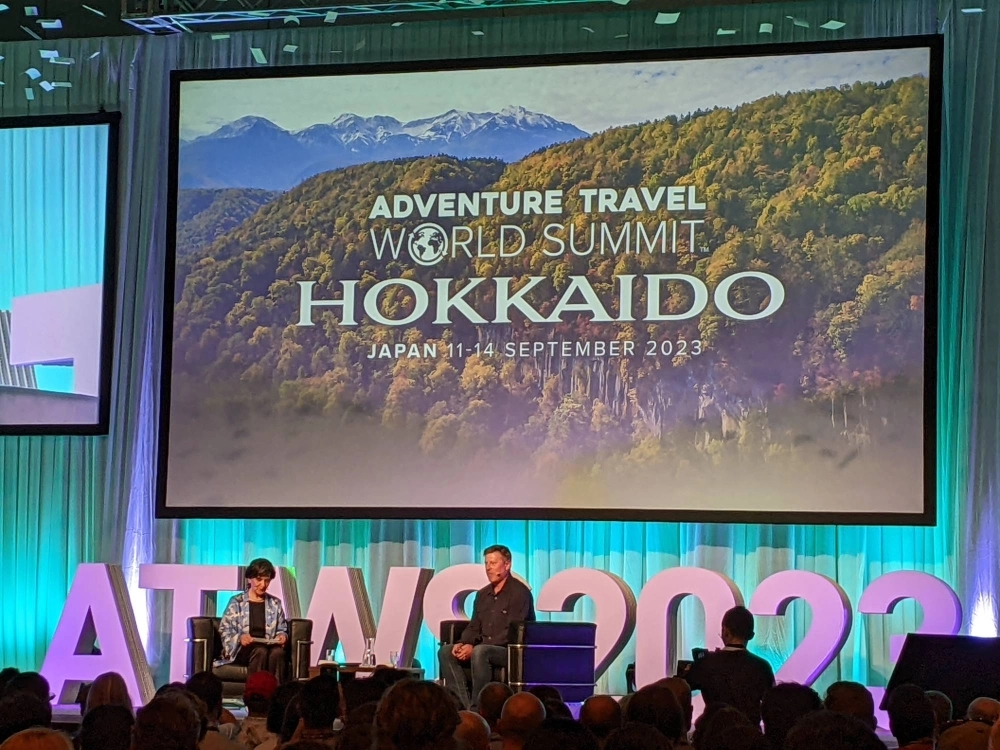As the warm-up routine reaches its zenith, the hilarity in the Sapporo Convention Center is palpable. It’s the opening keynote of the Adventure Travel World Summit (ATWS), and fresh from a one-day tour of Hokkaido’s natural assets and multiday adventures across the country, delegates from across the globe start the conference with more exercise: rajio taisō, Japan’s famed morning radio workout.
What followed from Sept. 11 to 14 was a sold-out, four-day extravaganza with 800 delegates from 64 countries and 70 regions mingling and offering their respective countries’ tourist offerings to over 100 buyers. Amid the business dealings, there are more snapshots of Japanese culture like the opening rajio taisō, such as a crowd-pleasing performance of a master calligrapher writing the characters for the summit’s theme — chōwa (harmony) — on a giant canvas, set to traditional music performed live on the koto, a traditional Japanese zither.
Walking into the venue, visitors were greeted by a wide open space allowing for uninterrupted access to all exhibitors. As the host country, Japan’s contingent of tour providers enjoyed a privileged position right by the entrance, so attendees could start with a “visit” to Shikoku and end in destinations such as Fiji and Panama. Ainu motifs including hanging banners and garments sporting traditional patterns decorated the hall, an ever-present reminder of Hokkaido’s indigenous culture.


















With your current subscription plan you can comment on stories. However, before writing your first comment, please create a display name in the Profile section of your subscriber account page.